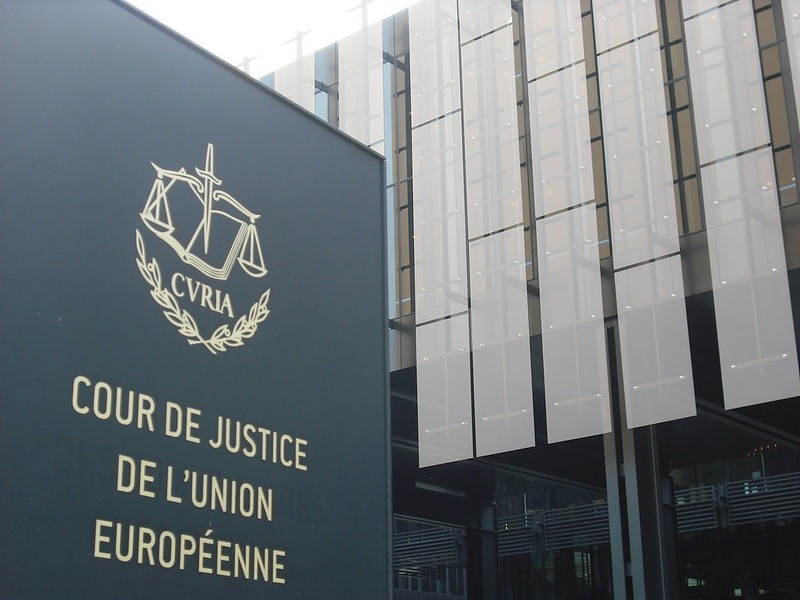“Beneficial ownership” is the term for who, in reality, benefits from (or owns) a given company or corporate structure. Wealthy individuals, criminals and tax cheats are among those who routinely disguise ownership of such entities, often to hide their wealth from authorities.
Organizations fighting for tax equity and reform immediately denounced the ruling.
“By requiring corporations and offshore entities to publicly disclose who truly owns them, public beneficial ownership laws are designed to prevent their owners from escaping the rule of law, which can mean preventing billionaires from evading tax as well as preventing sanctioned oligarchs, organized crime and human traffickers from laundering money and financing illegal activity,” said the London-based Tax Justice Network advocacy group.
The organization pointed out that the anti-secrecy regulations were enacted by EU countries in recent years as a direct response to the financial improprieties disclosed by the Panama Papers, the Pandora Papers, and other similar leaks of financial data.
Citing privacy concerns, the court has invalidated the legal obligations for corporations, trusts, and other legal entities to publicly reveal the identities of their beneficial owners, even those who deliberately try to hide their identities by utilizing shell companies and loopholes in regulations.
“The Court, sitting as the Grand Chamber, holds that, in the light of the Charter of Fundamental Rights of the European Union, the provision of the (5th) anti-money-laundering directive whereby Member States must ensure that the information on the beneficial ownership of corporate and other legal entities incorporated within their territory is accessible in all cases to any member of the general public is invalid,” the judgment states.
It concluded that allowing the public access to information on beneficial ownership violates the basic rights to privacy and the protection of personal data, as established in the EU Charter.
Under current regulations, the court claimed, disclosing such information allows a potentially endless number of people to learn about a beneficial owner’s material and financial status.
“Furthermore, the potential consequences for the data subjects resulting from possible abuse of their personal data are exacerbated by the fact that, once those data have been made available to the general public, they can not only be freely consulted, but also retained and disseminated,” the court warned.
The Tax Justice Network also underlined that the ruling occurred in the midst of EU deliberations about strengthening measures to fight dirty money entering the EU from Russia.
“With public access to registers across the EU now revoked, dirty money will likely surge back into the EU,” the organization warned.
The court’s judgment indicates that requiring offshore firms to publicly reveal information about their owners is unreasonable, even though small domestic businesses in the EU and elsewhere have been doing so for decades, according to Moran Harari, lead researcher on indices at the Tax Justice Network.
“This double standard of shielding the rich and powerful from public transparency and accountability is exactly what enables money laundering and tax abuse, and is exactly the type of dogma that governments across the EU have been fighting against by championing public beneficial ownership laws,” he said.
He added that the court’s ruling does not necessarily safeguard the idea of privacy, but rather the privacy of those owners who have gone out of their way to avoid legal liability.
The global anti-graft watchdog Transparency International believes that the EU Court of Justice’s ruling has set back the battle against cross-border corruption for years.
“We have seen time and time again, from the Czech Republic and Denmark to Turkmenistan, how public access to registers helps uncover shady dealings. At a time when the need to track down dirty money is so plainly apparent, the court’s decision takes us back years,” said Maíra Martini, corrupt money flows expert at Transparency International.
She stressed, however, that not all appears lost, as the court did recognize that civil society and the media had a legitimate interest in acquiring such information, given their involvement in the battle against money laundering.
Roland Papp, senior policy officer of Transparency International EU, thinks that the European lawmaking and executive bodies should now counter the Court’s decision by “guaranteeing access in the current 6th EU Anti-Money Laundering Directive,” which should also include “precise provisions that reconcile public access with privacy and security concerns.”
At the same time, the Tax Justice Network urged EU governments to refuse to accept “a return to the dark ages of dirty money and to open a full public hearing on the decision.”
The organization also warned that the EU court decision came a day before the United Nations General Assembly on Wednesday passed a resolution for inclusive and effective tax cooperation, seen as a first step towards an inclusive, democratic and transparent process to reform global tax architecture and fight nearly US$500 billion loss in taxes every year.
“With the EU’s hands now tied on public beneficial ownership transparency, countries will increasingly look to the UN to pick up the charge,” the Tax Justice Network concluded.



